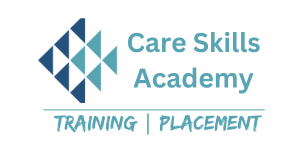Drones have revolutionized various industries, from aerial photography and agriculture to surveillance and logistics. As the demand for these flying devices continues to grow, so does the need for skilled professionals who can repair and maintain them. Drone repairing courses have become an essential learning avenue for those interested in pursuing a career in this rapidly evolving field. In this blog, we’ll dive into the details of drone repairing courses, the skills you can gain, and why it’s a promising career choice.
Why Learn Drone Repairing?
As drones become more accessible and affordable, their usage has expanded beyond enthusiasts to businesses and industries. With the increasing reliance on drones, the need for drone technicians has become critical. Drone repairing is not just about fixing broken parts; it involves understanding the technical aspects, diagnosing issues, and making drones flight-ready. Here are a few reasons why you should consider learning drone repairing:
- Growing Industry: The global drone market is expanding at an unprecedented rate, with applications in sectors like delivery services, agriculture, real estate, filmmaking, and more. This growth translates into a rising demand for skilled drone technicians.
- Diverse Career Opportunities: Drone repairing skills open up a range of career options, from working with drone manufacturers and service centers to starting your own repair business or consulting.
- Hands-on Technology Experience: Drones are at the forefront of technological innovation. A drone repairing course will equip you with hands-on experience in dealing with advanced technology, electronics, and software systems.
- High Earning Potential: Skilled drone technicians are in high demand, which often means competitive salaries and the potential for lucrative job opportunities.
What to Expect from a Drone Repairing Course
A well-structured drone repairing course will cover both theoretical knowledge and practical skills necessary to diagnose and fix drones. Here are some key areas that you can expect to learn in a drone repairing course:
- Basic Electronics and Circuitry: Understanding the fundamental principles of electronics is essential in drone repair. Courses typically begin with basics like voltage, current, and resistance, as well as an overview of circuits used in drone systems.
- Drone Components: You will learn about the different components that make up a drone, including the flight controller, GPS module, motors, propellers, batteries, camera systems, and sensors. Knowing how these parts interact is crucial for troubleshooting issues.
- Soldering and PCB Repair: Since many drone parts are interconnected through a printed circuit board (PCB), learning how to solder and repair PCBs is a vital skill. Courses provide practical training on handling PCBs and fixing faulty connections.
- Firmware and Software Calibration: Drones are equipped with firmware that controls their flight dynamics. A good drone repairing course will teach you how to update, calibrate, and troubleshoot firmware issues to ensure smooth drone operation.
- Troubleshooting and Diagnostics: The ability to identify the root cause of a malfunction is one of the most valuable skills for a drone technician. The course will guide you through diagnostic tools and techniques used to detect issues with the drone’s hardware or software.
- Safety Protocols: Working with drones requires a focus on safety. You’ll learn about best practices for handling electrical components, batteries, and other parts to avoid accidents and damage.
Benefits of Enrolling in a Drone Repairing Course
- Industry-Relevant Skills: Drone repairing courses are designed to provide skills that are directly applicable in the field. You’ll gain expertise in fixing drones, which is essential for businesses that rely on drone technology.
- Hands-on Learning: Most drone repairing courses emphasize practical learning through lab sessions and hands-on projects. This approach helps you build confidence in your ability to repair drones in real-world scenarios.
- Networking Opportunities: Enrolling in a drone repairing course can connect you with like-minded individuals, industry experts, and potential employers. Networking is a key element for advancing in any technical career.
- Certification: Many drone repairing courses offer a certification upon completion. Having a certification from a reputable institution can boost your resume and increase your chances of securing a job in the drone industry.
Career Opportunities in Drone Repairing
Upon completing a drone repairing course, various career paths become available to you, including:
- Drone Repair Technician: Work with companies that manufacture, sell, or service drones, handling maintenance and repair tasks.
- Technical Support Specialist: Provide troubleshooting and technical support to drone users and help them resolve issues remotely or on-site.
- Freelance Drone Repair Expert: Start your own business offering drone repair services to individuals, businesses, and organizations that use drones.
- Drone Consultant: Advise businesses on the best drones for their needs, maintenance practices, and technical upgrades.
Conclusion
A drone repairing course is a great investment if you’re looking to enter a technology-driven industry with immense growth potential. As drones continue to transform the way we work and live, the need for skilled professionals to repair and maintain them will only increase. By mastering the art of drone repairing, you’ll not only open doors to a rewarding career but also contribute to the advancement of drone technology. Whether you want to work for a drone company, provide freelance services, or become an entrepreneur in the drone industry, this skillset will position you for success.

